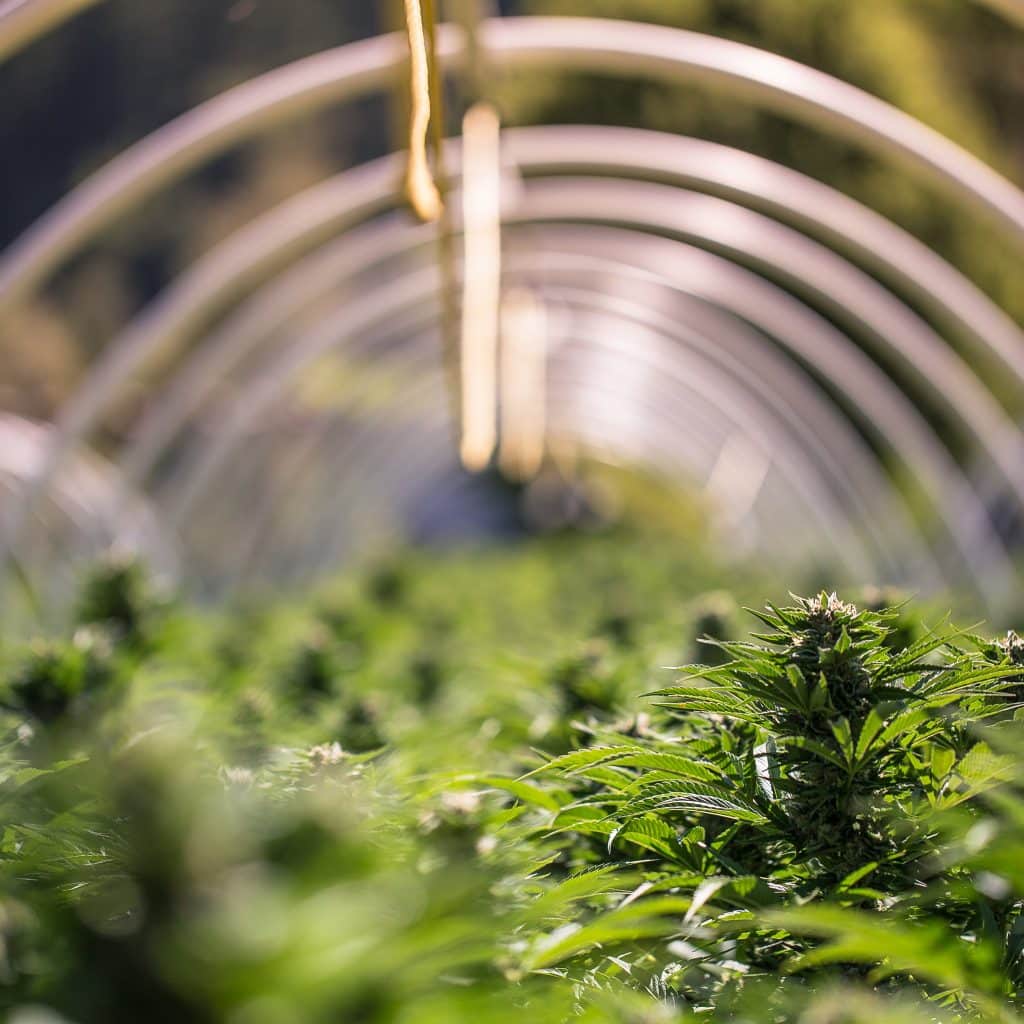If we think back a few years to all the “green rush” headlines circulating about cannabis, it’s a little bit hard to wrap your head around where the industry is at today. Unfortunately, today’s cannabis industry is plagued with many struggles amid falling wholesale prices and plummeting sales at legal dispensaries.
What’s more, it seems the pain is only beginning, and companies are trying to correct course by cutting costs in whatever ways possible. Often, that’s at the expense of employees who are laid off or get their salaries reduced, and consumers who are left with cheaply-made, overpriced products available at a decreasing number of retail stores.
What’s going on the in the cannabis industry lately?
Cannabis legalization is a wonderful thing, there’s no denying that. No one should ever get arrested or have their life inconvenienced over cannabis use. However, despite how much people love weed and support progressive reform, the industry is not doing nearly as well as anticipated – meaning it’s generating much less revenue than expected. Everyone in the supply chain is feeling the heat including cultivators, extractors, dispensary owners, and even those operating ancillary businesses like software and technology, accessories, packaging, etc.

But the problem is not demand, people are still buying just as much pot as ever, probably more so as there has been a sharp rise in middle-aged and older Americans who use cannabis products. So it’s not that people are losing interest in weed, although the culture has shifted dramatically from rebellion to mainstream… it’s because of several different elements that make it difficult for weed business to make a profit. These include insanely high taxes, an oversaturated market, and still-thriving illegal sales.
Cannabis businesses are notoriously overtaxed. Then factor in the many other costs and fees associated with operating a weed business, and it translates to higher prices for consumers, typically much higher than what they would find from a street dealer or unlicensed dispensary, and much higher than they’re willing to pay. And because these unregulated distributors have access to all the same products, sometimes better or more potent ones (since they don’t have to follow regulations for THC limits), than legal dispensaries, that makes for an extremely hostile and competitive environment for anyone trying to operate an above-board cannabis business.
There are quite a few other issues with today’s cannabis market that need addressing as well, such as oversupply of flower – to the point that growers are having trouble selling off much of their stock, difficulty advertising on prominent search engines and social media sites, problems finding property and real estate for their business endeavors, banking/financing struggles, and the list goes on.
Throughout the first part of the COVID-19 pandemic, people worked remotely and received government assistance which led to an explosion in cannabis product sales. This fueled additional spending by business owners and shareholders, and led to inflated sales numbers that, as we see now, are just not there anymore. Investors are taking notice of all the changes and are much less likely to drop money into cannabis enterprises now than they were in previous years.
In response, big players in the industry are desperately trying to reduce operating costs; from mass layoffs and salary cuts, to store closures, and even taking shortcuts on the production side of things. If these patterns don’t let up, the cost-cutting measures are likely to continue well into 2024 and 2025.
Mass layoffs and salary cuts
Layoffs in the industry are widespread and not limited to any specific areas or sectors. Everyone is getting hit relatively hard. Several large, multistate operators including Curaleaf and Trulieve, as well as many smaller and ancillary companies are reworking their business strategies. Additionally, a growing number of high-profile executives have been leaving the industry. “I don’t think layoffs have peaked, I think this will continue into 2024 for sure,” said Sara Gullickson, CEO and founder at The Cannabis Business Advisors, in an interview with MJBizDaily.
Many companies are also resorting to reducing employee salaries in an effort to keep jobs but save money. This is a bit less widespread than the layoffs, but a growing issue, nonetheless.
Over the past several months, layoffs and salary cuts have been reported by:
- Oregon-based cannabis retail technology firm Dutchie laid off over 10% of its workforce in two rounds of layoffs last June and November.
- Cannabis tech company WM Technology (operator of California-based Weedmaps) laid off over 25% of its workforce (or 175 employees) last year. A few of their top executives resigned as well: CEO Chris Beals, Chief Operating Officer Juanjo Feijoo and Chief Technology Officer Justin Dean. Their stock also dropped over 80% in 2022.
- Massachusetts-based Curaleaf cut 220 employees in November and 50 in August. The company also closed its Sacramento, California, facility. They also announced a 10% payroll reduction across the board.
- Seattle-based cannabis commerce platform Leafly Holdings laid off 56 employees in October, or 21% of its workforce. COO Sam Martin resigned from the company in December.
- Florida-based Trulieve cut roughly 36 employees in Pennsylvania in December, and an undisclosed number in Florida.
- New York-based cannabis wholesale platform Leaflink cut 80 jobs in December.
- Denver-based compliance software company Akerna terminated 56 positions in May. A 25% salary cut will also be implemented.
- Florida cannabis marketing technology company Springbig reduced its workforce by 23%, or 37 jobs, through “layoffs and attrition.”
- Green Leaf Medical, a subsidiary of New York-based MSO Columbia Care laid off 73 employees in Saxton, Pennsylvania, in February of this year.
Thank you for stopping in. Head over to the Cannadelics Weekly Newsletter for direct updates; and get access to awesome deals on cannabis buds, vapes, edibles, smoking devices and equipment, cannabinoid compounds, and some psychedelic products! Go get high responsibly!
Store and facility closures
Numerous dispensary chains, large and small, are closing their less profitable stores, leaving consumers with less options for legal pot purchases. In September of last year, Canopy Growth announced that it was planning to close off many of its retail locations throughout Canada, including stores under the Tweed and Tokyo Smoke brand names.
In a letter to shareholders, Zachary George, CEO of Sundial Growers, one of Canada’s largest operators of adult-use cannabis stores, announced another wave of potential closures. He warned the “trickle” of cannabis store closures could grow into a flood “with the toll likely closer to 1,000 than 100.” He added that, “Most retailers are struggling to be profitable, and we are starting to observe a trickle of closures on a weekly basis.”
In January, Curaleaf officially stated that they would be closing all of their retail locations in California, Colorado, and Oregon as part of their “continued effort to streamline business operations.” They currently have only one store left in that region, which is on Fremont Street in Portland. All of their California and Colorado dispensaries and cultivation/production facilities have been shut down.
In the Midwest, Michigan-based retailer Lume Cannabis closed 4 of its 30 stores in the state. This was shortly after they announced plans to have 100 stores in Michigan by 2025. In Michigan, like many other legal markets, oversaturation is a serious problem that has resulted in substantially lower product prices. The stores that were closed – in Bay City, Cheboygan, Christmas and Southfield – had experienced serious sales declines.
Taking shortcuts
Aside from disposing of employees to save money, many companies are taking some shortcuts on the production side of things too. Although it’s hard to get statistics on exactly how many products are poorly made, mislabeled, or contaminated, if you’re a regular visitor to dispensaries, and especially if you travel and go to different locations frequently, you know those number are quite high.
Some of the product-related issues a consumer might experience include:
- Poorly produced products – this can be edibles with low-quality ingredients, poorly manufactured vape carts and disposables, glassware and other smoking devices that are defective or otherwise subpar, and the list goes on.
- Mislabeling and falsified lab reports – a lot of cannabis products on the shelves these days are mislabeled, so even when trying to shop smart, it can still be difficult for a consumer to know what they’re getting. A common tactic used by producers is to send in the best samples for batch testing, and use the labels for the rest of their products.
- Contaminated and diseased flower – pesticides, herbicides, and environmental contaminants impact many weed crops. There has also been the ongoing issue of hop latent viroid, an infectious plant pathogen that has been found in up to 90% of commercial crops.
- Bad/cheap extractions – if you dab often, then you have more than likely experienced the butane taste associated with poor extractions. If it happens occasionally, that’s one thing, but I was experiencing it so often that I stopped smoking/dabbing concentrates entirely.
Ancillary companies and the ‘trickle-down’ effect
As you likely noticed in the layoffs section, it’s not just companies directly connected to cannabis products that are feeling the brunt – many ancillary companies are in trouble as well, particularly those in the software and technology sector. Leafly, Akerna, Leaflink and others are implementing many of the cost-cutting measures listed above.
According to Gullickson, “even though their services are specialized and needed by the broader cannabis industry, the problems facing cultivators and retailers are trickling down to non-plant-touching ancillary companies.” She mentioned that, “As capital and revenue declines on the plant-touching side, it strangles many of the ancillary businesses that rely on those operators for their customer base.”
In Akerna’s case, the company laid off a large number of employees AND their executive team agreed to a 25% cut in compensation as part of company’s plan to “accelerate their path to profitability,” as stated in a recent press release. Earlier this year, Akerna also announced that they would be selling 365 Cannabis back to some of their previous investors, but they are selling it for much less than they purchased it for back in 2021.
Final thoughts
Whether you’re working in the industry or simply a consumer in the legal market, you’ve likely noticed some changes in pricing and product standards over the last couple of years. It’s not all bad, some companies are still doing alright and who doesn’t like cheaper weed, right (if you’re willing to sacrifice on quality that is)? But unfortunately, things are just not sustainable the way they are going currently, and the only option for getting the market back on track is by lowering tax rates and offering cannabis businesses the same benefits and assistance that other industries are afforded. Otherwise, they’ll continue to be outpaced by the illegal market and will keep cutting corners whenever the opportunity arises.
Welcome readers! Thanks for hanging out with us at Cannadelics.com; an independent publication that brings you new and ongoing stories in the cannabis and hallucinogen spaces. Come ’round regularly so you don’t miss out on anything; and subscribe to our Cannadelics Weekly Newsletter, to ensure you’re never late to get the news.






